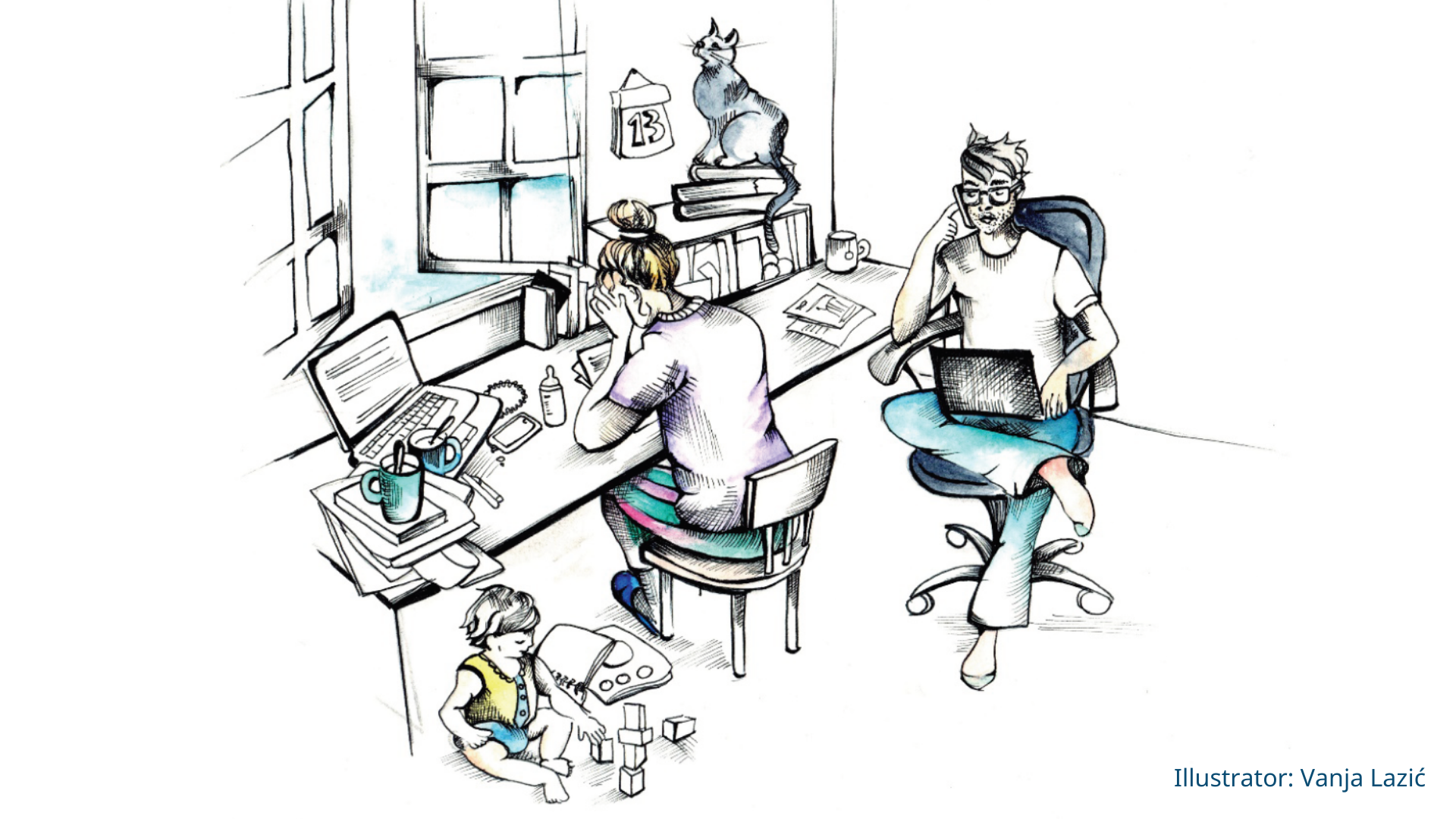30 signals to consider for a sustainable future
The Changing Nature of Work: 30 signals to consider for a sustainable future
July 28, 2021
The Changing Nature of Work: 30 signals to consider for a sustainable future
SIGNAL 4. Wellbeing and the life-work balance
Physical distancing and lockdowns imposed by the pandemic have made remote work arrangements a necessity for many organizations. This short-term measure has the potential to turn into a new normal, blurring the line between work and leisure, making it harder for many people to manage their daily lives.
According to research conducted in the United States, the United Kingdom, and the European Union, before the pandemic, up to 80 percent of employees experienced work-related stress regularly. There are additional stress factors associated with COVID-19: uncertainty overall, the urgency of establishing a new set-up, fluid lines between working and non-working hours, e.g., e-mails and urgent requests from colleagues and/or management late in the day, and lack of time for adaptation. Organizations and team leaders are being pushed to help their employees to adapt to the new conditions and to increase resilience and maintain wellbeing within the new reality.
According to research conducted in the United States, the United Kingdom, and the European Union, before the pandemic, up to 80 percent of employees experienced work-related stress regularly. There are additional stress factors associated with COVID-19: uncertainty overall, the urgency of establishing a new set-up, fluid lines between working and non-working hours, e.g., e-mails and urgent requests from colleagues and/or management late in the day, and lack of time for adaptation. Organizations and team leaders are being pushed to help their employees to adapt to the new conditions and to increase resilience and maintain wellbeing within the new reality.
The disruption caused by the recent pandemic, specifically the shift to remote work, has boosted discussions around the work-life balance. While such a balance was previously seen as a set of measures aimed to regulate two distinct areas of life, the COVID-19 situation has urged people and organizations to revise this approach and focus on the holistic integration of various aspects of life. For instance, organizations that had been practicing flexible working arrangements and that introduced technological solutions and virtual teams prior to the pandemic reported increased team productivity during the pandemic. According to Deloitte’s survey of companies in Switzerland, 70 percent of workers acknowledged the effectiveness of remote work. Also, employees indicated that due to the extreme situation, there was not always enough time to make proper home arrangements such as creating suitable desk space and reconciling children’s needs with the demands of work and other necessities, which is a real cause of stress for many.
Deloitte’s 2020 Human Capital Trends report reveals that an increased level of trust, greater freedom in making decisions and controlling the workflow, and regularly acknowledging employees’ contributions can be the first steps towards a new wellbeing concept. However, 79 percent of the respondents stated that their organizations were not ready for such changes. To maintain a high level of efficiency and motivation among employees, organizations must reorganize themselves not only in terms of infrastructure, but also corporate culture.
____________________________________________________________________________________________________________________________________________________________________
The Changing Nature of Work: 30 signals to consider for a sustainable future
Work helps sustain livelihoods and largely determines the quality of life. Its changing nature is at the frontier of development. This report is the result of a broad horizon scanning by six UNDP Accelerator Labs across Europe and the Commonwealth of Independent States. They reveal 30 signals that shape the “where, who, how, and why” of the changing nature of work. From the impact of COVID-19 on the workforce to new work models and entrepreneurial ecosystems, the authors explore opportunities and threats, as well as solutions from local contexts that can be scaled up into positive answers to the challenges people around the world are facing. Download the full report here.

 Locations
Locations





